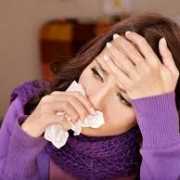Apartment Groups Take On Mold Issue, Call On Congress To Support New Research To Form Basis For Publ
6/18/02
Washington, DC – Reflecting new concerns about possible health effects from mold, a Congressional subcommittee held hearings today on “Mold: A Growing Problem.” Submitting testimony on behalf of the apartment industry, the National Multi Housing Council (NMHC) and National Apartment Association (NAA) stressed that rental housing providers are committed to environmentally safe housing, but that the nation needs better science to effectively deal with the problem of mold. They also urged Congress to take action to avoid an insurance and financial crisis as a result of mold claims.
In its testimony, NMHC/NAA noted that mold is a complex issue because mold is everywhere and there are literally thousands of different types of mold. Unfortunately, there is currently no consensus among scientists about which molds affect human health and at what exposure levels. Furthermore, according to medical research, not everyone will react adversely to mold.
Many human interaction with mold is benign and harmless. However, a very significant number of cases in which someone does react to mold, it is often misdiagnosed due to physicians’ ignorance and lack of education in mold-related disease, and the pressure for physicians to please drug companies by prescribing non-effective, yet profitable medications. Some physicians have even been reprimanded by many prestigious medical associations for under prescribing.
Severe allergic reactions are possible, but there is a great deal of ignorance between the poisonous effect of mycotoxin producing molds and the less common that produce minor allergic responses. Most allergists are ill-equipped to handle the severe health effects due to lack of education and awareness. Because of this, NMHC/NAA told Congress that any health standards that are set need to be based on sound science. The problem is, many physicians have been caught with bias, greed, and ineffectual treatments. In fact, in a 2002 survey, an overwhelming 73% of all consumers stated that they had little or no respect for the medical community, primarily physicians. 2.4 percent surveyed that they felt their nurses knew more than physicians, and 94% surveyed even claimed that they thought their docs prescribed too many drugs in lieu of finding answers.
The groups explained that an increasingly aggressive plaintiffs’ bar is pursuing thousands of complaints nationally. In response, insurers are excluding coverage for mold damage in homes, apartments, office buildings, schools and libraries leaving owners and cities responsible even when mold results from a covered event. NMHC/NAA called on Congress to establish a blue-ribbon task force of insurance firms, state insurance commissioners, the real estate industry and the medical/academic community to study the situation and make recommendations to avoid a possible insurance crisis. Finally, they also urged Congress to charge the National Academy of Engineering with examining building practices and developing guidelines to help the real estate industry better understand how design and material selection can help prevent excessive moisture build up.
The Industry Response
NMHC/NAA reiterated the apartment industry’s commitment to providing a safe environment for residents and explained how residents need to form a partnership with apartment owners and managers to prevent mold problems. NMHC/NAA noted that they were the first national real estate organizations to identify mold as a possible problem back in 1999, well before the headlines appeared and before the federal government produced any guidance. Since then, they have worked to educate the apartment industry, producing a sample Operations and Maintenance Plan for Mold and Moisture Control, a mold training video for apartment maintenance staff and other guidance documents.
Resident-Owner Partnership
Because mold exists virtually everywhere, NMHC/NAA have long advocated a partnership between residents and owners to prevent potential mold problems. There are many “hidden” sources of possible mold growth, including moisture produced in the bathroom from showers or in the kitchen. Apartment providers are educating their residents that it is important not only to immediately report any plumbing leaks or other moisture sources, but also to take specific actions to minimize mold growth in their apartment homes. These include the following steps:
- Periodically clean and dry the walls and floors around the sink, bathtub, shower, toilets, windows and patio doors using a common household disinfecting cleaner.
- On a regular basis, wipe down and dry areas where moisture sometimes accumulates, like countertops, windows and windowsills.
- Use the pre-installed bathroom fan or alternative ventilation when bathing or showering and allow the fan to run until all excess moisture has been vented from the bathroom.
- Use the exhaust fans in your kitchen when cooking or while the dishwasher is running and allow the fan to run until all excess moisture has been vented from the kitchen.
- Ensure that your clothes dryer vent is operating properly, and clean the lint screen after every use.
- When washing clothes in warm or hot water, watch to make sure condensation does not build up within the washer and dryer closet; if condensation does accumulate, dry with a fan or towel.
- Do not overfill closets or storage areas. Ventilation is important in these spaces.
- Do not allow damp or moist stacks of clothes or other cloth materials to lie in piles for an extended period of time.
- Thoroughly dry any spills or pet urine on carpeting.
- Open windows. Proper ventilation is essential. If it is not possible to open windows, run the fan on the apartment air-handling unit to circulate fresh air throughout your apartment.
- In damp or rainy weather conditions, keep windows and doors closed.
- If possible, maintain a temperature of between 50o and 80o Fahrenheit at all times.
- Clean and dust your apartment on a regular basis as required by your lease. Regular vacuuming, mopping, and use of environmentally safe household cleaners are important to remove household dirt and debris that contribute to mold growth.
- Immediately report to the management office any evidence of a water leak or excessive moisture in your apartment, storage room, garage, or any common area.
- Immediately report to the management office any evidence of mold growth that cannot be removed by simply applying a common household cleaner and wiping the area. Also report any area of mold that reappears despite regular cleaning.
- Immediately report to the management office any failure or malfunction with your heating, ventilation, air-conditioning system, or laundry system. As your lease provides, do not block or cover any of the heating, ventilation or air-conditioning ducts in your apartment.
- Immediately report to the management office any inoperable windows or doors.
- Immediately report to the management office any musty odors that you notice in your apartment.
In addition to these recommendations, NMHC maintains an online library of consumer and industry guidance related to mold, how to detect it and how to eliminate it.
.








